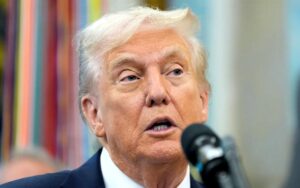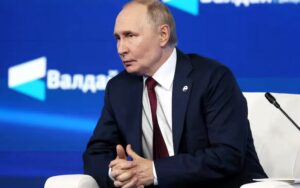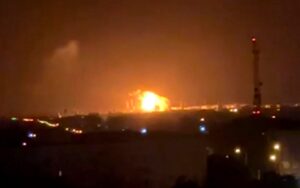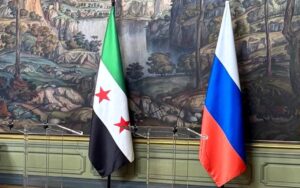Lavrov: We look forward to receiving the Syrian President in Moscow

Russian Foreign Minister Sergey Lavrov held official talks with his Syrian counterpart, Asaad al Shaibani, in Moscow on Thursday, as part of efforts to strengthen bilateral cooperation and keep pace with regional developments.
During the meeting, Lavrov expressed his country’s aspiration to welcome Syria’s interim president, Ahmed al Sharaa, to Moscow for the upcoming Russian-Arab summit in October.
The two sides announced their agreement to a comprehensive review of all existing bilateral agreements, a step aimed at deepening the strategic partnership between the two countries.
The two sides also agreed to establish a field hospital in As-Suwayda Governorate as part of efforts to support areas affected by the security situation.
Russia also pledged to help Syria overcome its current humanitarian and political challenges.
During the meeting, Lavrov affirmed Russia’s continued support for Syria as a unified, sovereign state, emphasizing the need to prevent the use of Syrian territory to settle scores between external parties.
He also expressed his country’s support for a comprehensive national dialogue that includes all components and sects, and considered the steps announced by transitional Syrian President Ahmed al Sharaa to constitute the basis for a political solution in the country.
Within the framework of bilateral relations, the Russian minister called for enhanced political and economic coordination and offered to help mediate between the Syrian government and Kurdish forces to reach a common understanding.
He also stressed the importance of lifting the sanctions imposed on the Syrian people, believing they hinder reconstruction and stability efforts.
For his part, Syrian Foreign Minister Asaad al Shaibani affirmed that Damascus seeks to open a new page in its relations with Moscow, based on cooperation and mutual respect, considering that relations are undergoing an important transformation.
He also called on Russia to support the transitional justice process in Syria, emphasizing that partners’ recognition of the sacrifices of Syrians is essential for any genuine partnership
Regarding the Israeli escalation, Shaibani considered that the repeated attacks on Syrian territory exacerbate the suffering of civilians and disrupt reconstruction efforts, stressing that foreign interventions, particularly Israeli ones, further complicate the situation in As-Suwayda.
He categorically rejected any use of the minority issue as a political card, explaining that the Syrian state alone bears responsibility for protecting all its components, including the Druze.
The Syrian foreign minister indicated that the Syrian government doesn’t intend to take any hostile measures against the Druze community, accusing Israel of inflating the issue and exploiting it politically.
He emphasized that Damascus is open to international partnerships that respect its sovereignty, adding that dialogue with Russia represents a strategic step toward recovery and reconstruction.
Shaibani concluded by pointing out that Syria has already begun to regain its international standing through multiple partnerships, noting that the war has exhausted the country and that the time has come to unite Syrians, both at home and abroad.







